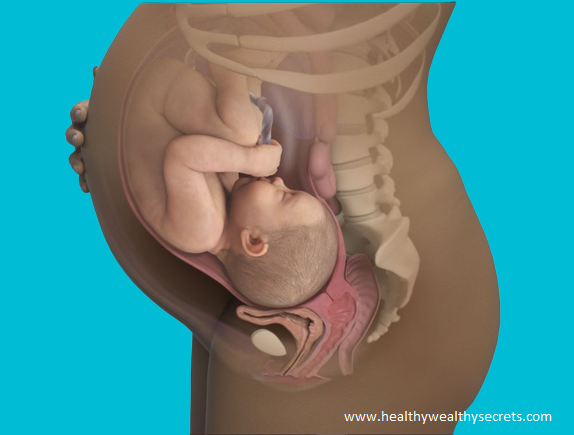8 months pregnant – Symptoms, Baby Growth and Caring Tips, Baby Size, Do’s and Don’ts
Pregnancy symptoms and Growth yay, the due date is close, plus the onset of labor is likely to happen this week and the baby is considered a term baby. Your baby is still developing and honing important skills like swallowing and sucking. Watch on to know how much he has developed and what’s left. Baby’s Growth during the 8 months means the 37th week of pregnancy, one toenail will continue to grow, so you can always expect your baby to have slightly overgrown nails when born. To the umbilical cord starts to pump the baby’s body with antibodies to help it fight off disease and infection. After birth. Three the baby is ready to come out as the lungs are fully functional by this time. What is the size of the baby? At one month before baby to be born, the baby will be about the size of romaine lettuce, approximately 19.1 inches long, and weigh around 2.8, the same as a baby kangaroo. Common bodily Changes at the 37th week of pregnancy may feel Braxton Hicks contractions or false contractions, often every ten to 20 minutes by the 37th week of pregnancy. Speak to your doctor if it hurts. There will be a reduction in the amniotic fluid as the increased size of the baby will have displaced most of the fluid.
Symptoms of Pregnancy at months-8 one heartburn the expansion of the uterus may cause stress to the digestive system, resulting in heartburn. Two spotting or bleeding is common at the 8 months of pregnancy due to the increased sensitivity of the cervix. Three insomnia is triggered due to the urge to urinate, frequently uncomfortable sleeping positions, and anxiety. What are the signs of labor? One regular contraction begin before labor, but can often be confused with false contractions, better known as Braxton Hicks contractions. If they are irregular or go away if you rest, they are probably Braxton Hicks contractions. Water Breaking is the breaking or tearing of the protective amniotic sac that has been cradling your baby all this while. Every woman has a different experience when her water breaks. Based on this, the amount of amniotic fluid coming from the cervix and vagina could be a trickle or a gush. Three losing the mucus Plug this is a type of cervical mucus loaded with antimicrobial properties to protect that baby from infection against bacteria. Once this comes out because of the baby drop, most women go into labor in the next 12 hours.
parenthood symptoms, baby development and care for the 8th Month of gestation the feeling of being completely pregnant is most likely to hit you this month. However, watch this videotape, If you want to know what’s going on with your body. Eight Months Pregnant Symptoms number One briefness of breath number two false condensation number three constipation number four leakage of bone milk number five reverse pain physical changes in the 8th Month of gestation a small quantum of urine leakage maybe every time you sneeze, cough or indeed laugh. It can be enough disturbing. Heartburn, especially during the night, can give you insomniac nights.
What to eat as the body still experiences heartburn, trigger foods such as alcohol, fatty foods, and oily foods should be avoided. The baby’s brain is making rapid strides in terms of development, so eat protein-rich foods like fish, eggs, and milk. Cat tips one chart out a route you can take to the hospital with the least traffic. Limit caffeine intake, as it will only aggravate insomnia.
Water retention and a lump of extremities are anticipated during the third semester. Leakage of the amniotic fluid may be from the vagina. It can be discerned from urine grounded on the stronger smell and texture of the fluid. Breathlessness and dizziness can do due to the growing baby bump. Hot flashes do for some women during the third trimester.
It may anxious condition, perverse, and intolerant as the due date would feel near common problems that Arise in the 8th month of gestation number one preeclampsia. Preeclampsia is a gestation complication characterized by high blood pressure and protein in the urine. Women tend to have high blood pressure during this time. Undetected or undressed preeclampsia can be relatively dangerous to the fetus as it decreases the blood inflow to the baby. This concern should be addressed as early as possible.
Preterm birth preterm labor is a threat factor in the 8th month as some babies are in the syphilitic position and get ready for birth sooner than the full term. Babies born in the 8th month have a good chance of survival but bear ferocious care for numerous days. How will your baby develop during the 8th month of your gestation? The baby moves around and fixes its head inside the depression formed between the pelvic bones. This is veritably important in medication for vaginal delivery.
The neural connections in the baby’s brain are fleetly and the baby’s brain starts recycling the sound or light from outside the womb. During this month, a baby earnings considerable weight. The baby’s height also increases this month. The amniotic fluid situations measured during every antenatal visit reduce around this time. It’s a sign of the development of the baby’s feathers.
Foods rich in omega-three adipose acids and stringy foods to overcome constipation. Avoid raw, raw food raw shellfish, reused food, coffee, and unpasteurized milk juice. Have a balanced diet and have small refections, but constantly practice Kegel exercises regularly to fight the problem of urinary incontinence. Drink lots of water regularly to keep your body doused. lounge in the sun in the morning hours or in the evening to get enough vitamin D.
Do not eat reused food or junk food. Do not forget to take your vitamin and mineral supplements. Avoid rehearsing yoga acts or exercises without consulting a croaker
or a trained educator. Do not stress yourself with the study of delivery and labor taking time out to get cockered and feel special as you’re left with veritably many days to meet a pack of joy.










